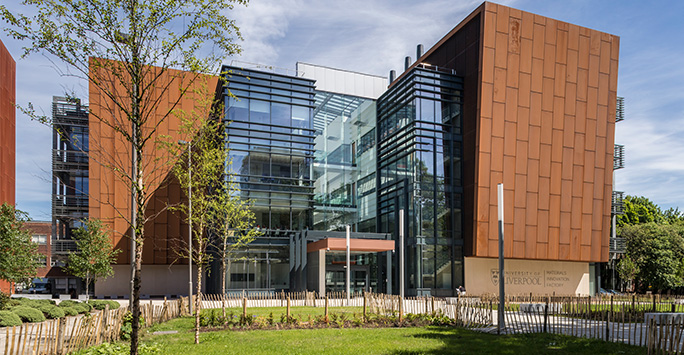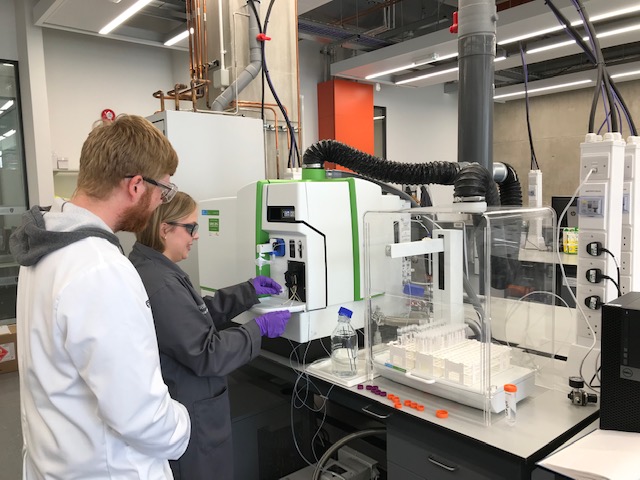Stephen McKillop, a PhD student at Ulster University, is the first researcher to benefit from a revolutionary new scheme at the Henry Royce Institute, providing students with access to world-leading facilities.
In January 2019 the Royce launched the PhD Equipment Access Scheme to allow PhD students and post docs to access state-of-art-equipment from across the national institute’s equipment catalogue.
The Scheme aims to help academic and research culture to move from competition to collaboration. The Royce is stimulating a national collaborative research environment to ensure the whole of the UK can benefit from government investment in advanced materials research and innovation.
Stephen, who is a PhD student in the Bio-devices group at Ulster University, was granted funding to use the University of Liverpool’s Inductively Coupled Plasma Mass Spectrometry Suite (IPC –MS). Stephen was looking to test the degradation rate of a calcium phosphate coating used in magnesium alloy biomedical implants.

Stephen accessed Royce equipment at the Materials Innovation Factory
Stephen explained the background to his work, and why he needed the Royce to take it further:
My PhD project looks at bioactive thin film coatings for magnesium orthopaedic devices that can be used in applications such as bone screws and biomedical implants. The alloys will eventually dissolve safety in the body however without the coating they fail and dissolve too quickly.
My project specifically focuses on a calcium phosphate coating and looks at how we improve the cellular response within the body to reduce healing time. We’re working in collaboration with Galway and three American universities to reduce the number of implant replacement operations a patient needs therefore reducing the risk of exposure to infections.
Using the ICP suite will help take Stephen’s research to the next level of understanding in terms of materials behaviour.
So far in my PhD I’ve developed the coating and done a lot of surface characterisation. I now need to understand the degradation of the coating before performing a cell study to understand how it will react within the body. Access to the IPC-MS Suite has allowed me to quantify the rate of ion released from the calcium phosphate coating in a solution.
I tested 36 samples – half in a pre-sterile environment here at the University of Liverpool and half back in the lab at the University of Ulster. I’m interested to see if that has an effect on the results as well.
Stephen is one of over 50 applicants to the Access Scheme in its first round, many of whom are now accessing Royce equipment and getting ready to report back to the Royce and include the findings in their research. Stephen said:
The funding from the Royce to undertake this study is extremely crucial to my research. I don’t have access to equipment that can measure ion release into liquid so here I was able to receive first-hand experience with a hyper sensitive technique for measuring metals.
It was a really simple application process and when I came to undertake the study here in Liverpool I was working alongside highly qualified technical staff who also helped me to interpret my initial results.



